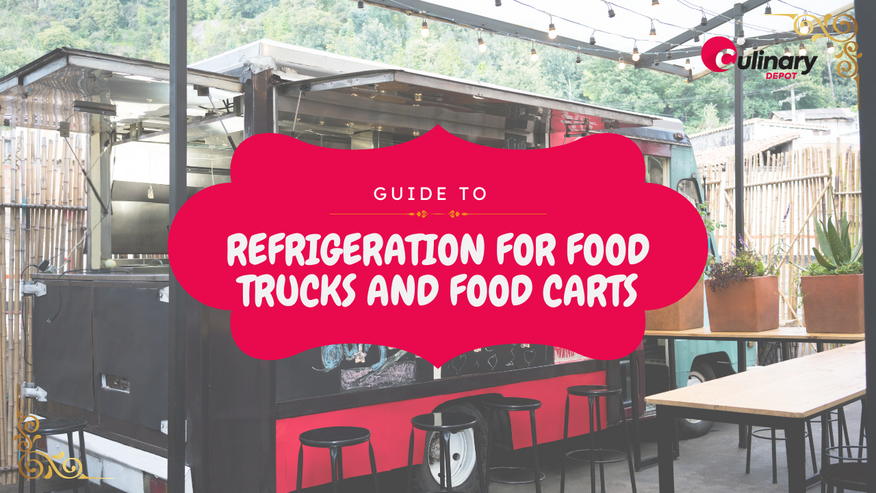Sep 19th 2023 - Team Member
Guide to Refrigeration for Food Trucks and Food Carts
Running a food truck or food cart can be a rewarding venture, but it comes with unique challenges, especially when it comes to food storage and refrigeration. Proper refrigeration is essential to maintain food safety and quality in mobile food businesses. In this comprehensive guide, we will explore the key aspects of refrigeration for food trucks and food carts, ensuring your mobile culinary operation stays efficient and compliant with health regulations.
Selecting the Right Refrigeration Equipment
Understanding Your Needs
Before diving into the world of food truck refrigeration, it's crucial to assess your specific needs. Consider factors such as menu offerings, daily volume, available space, and power source.
Size and Capacity
- Determine the size and capacity of refrigeration equipment required to store your ingredients, beverages, and prepared dishes.
- Balance space efficiency with the need for adequate storage.
Types of Refrigeration Units
When it comes to refrigeration for mobile food businesses, several options are available. Each has its advantages and limitations.

Commercial Reach-In Refrigerators and Freezers
- Ideal for food trucks with ample interior space.
- Offers easy access to ingredients and food items.
Undercounter Refrigerators and Freezers
- Space-saving options suitable for compact food carts.
- Efficient for storing frequently used ingredients.
Chest Freezers
- Excellent for bulk storage of frozen items.
- Requires careful organization to access items efficiently.
Power Sources and Electrical Considerations
Power Supply
The availability of a power supply can significantly impact your choice of refrigeration equipment.
Electric-Powered Units
- Reliable when connected to a stable power source.
- Ensure your food truck or cart has the necessary electrical capacity to support these units.
Propane-Powered Units
- Ideal for food trucks operating in locations with limited access to electrical outlets.
- Requires proper ventilation and safety precautions.
Related Article: Propane vs. Natural Gas: Which Is Best For Your Business?
Proper Installation and Maintenance
Installation
Installing refrigeration equipment correctly is crucial to ensure it operates efficiently and safely.

Proper Ventilation
- Ensure adequate ventilation to dissipate heat generated by the refrigeration units.
- Proper airflow prevents overheating and extends the life of the equipment.
Secure Mounting
- Securely mount refrigerators and freezers to prevent movement during transit.
- Minimize the risk of accidents and damage to the equipment.
Maintenance and Cleaning
Regular maintenance is key to keeping your refrigeration equipment in top condition.
Cleaning Schedule
- Establish a routine cleaning schedule to prevent the buildup of dirt and grime.
- Keep condenser coils, fans, and interior surfaces clean for optimal performance.
Temperature Monitoring
- Use thermometers to monitor the temperature inside refrigeration units.
- Regularly calibrate thermostats to ensure accurate temperature control.
Compliance with Health and Safety Regulations
Food Safety Regulations
Compliance with food safety regulations is paramount in the food industry.

Temperature Control
- Maintain refrigeration units at the recommended temperatures to prevent foodborne illnesses.
- Keep records of temperature logs for inspections.
Hygiene and Sanitation
- Adhere to strict hygiene and sanitation practices in food storage areas.
- Train staff on proper food handling to prevent cross-contamination.
Conclusion
Proper refrigeration is the backbone of any successful food truck or food cart operation. Selecting the right equipment, understanding your power source options, ensuring proper installation and maintenance, and staying compliant with health regulations are all crucial components of effective refrigeration management.
By following the guidelines in this comprehensive guide, you can ensure that your mobile food business maintains the highest standards of food safety, quality, and customer satisfaction, no matter where your culinary adventures take you.

